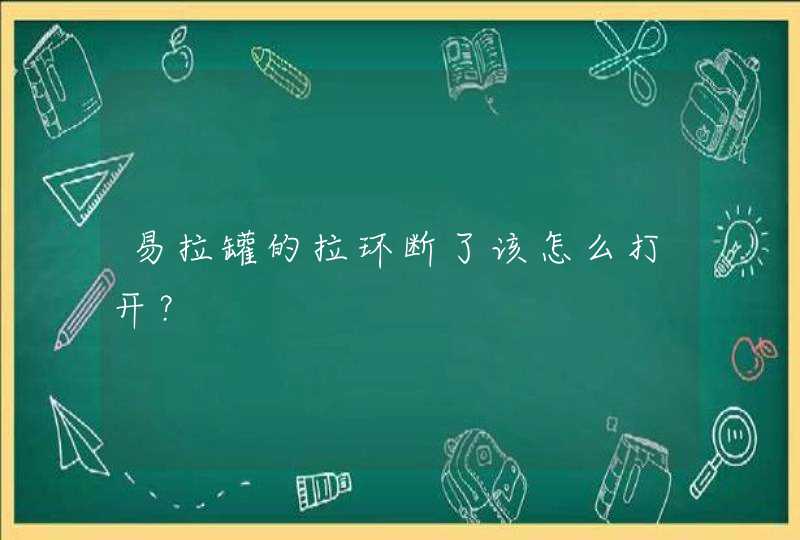He isn\'t at school. He is at home. 他不在学校,他在家。
2. in表示\"在......内部;在......里面\"的意思。如:
What is in the box? 盒子里有什么?
3. on表示\"在某物的上面\",但两者互相接触。如:
My books are on that table. 我的书在那张桌子上。
4. under表示\"在某物垂直的正下方\",两者之间不接触。如:
My cat is under my chair. 我的猫在我的椅子下。
5. behind表示\"在某物体的后面\"。如:
The broom is behind the door. 笤帚在门后。
6. in front of表示\"在......的前面\",正好与behind相反。如:
There are some big trees in front of our classroom. 我们教室前面有几棵大树。
7. near表示\"在某物体的附近\",意为\"接近、靠近\"。如:
The ball is near the door. 球在门旁边。
介词in, on, under, behind是表示静态位置的介词。
1. along:沿着…,顺着…
I'm walking along the river.
我正沿河而行。
2. across:从一边到另一边,在…那边
There are many trees across the river.
河对岸有很多树。
3. towards:向…,朝…
I'm walking towards the house.
我正朝房子走去。
4. in front of:在…的前面
There is a fruit tree in front of the house.
房子前面有一棵果树。
5. behind:在…之后
There is another fruit tree behind the house.
房后还有一棵果树。
6. into:到…里,进入内部
I want to go into the house.
我想走进房子。
7. inside:在…的里面,在…内部
I am inside the house now.
我正在房子里。
8. outside:在…外面
Now I am outside the house.
我现在来到房外。
9. in:在…里,表示在含有空间感的范围或物体之中
There is nobody in the house.
房子里面没有人。
10. above:在…之上,表示高于,不是垂直的
There are lots of apples above my head.
我的头顶上有很多苹果。
11. under:在…正下方,强调垂直在…之下
I want to have a rest under the tree.
我想在树下休息一会儿。
12. off:从…脱落,从…掉下
on:在…之上,与…表面相接触
An apple falls off the tree and hits me on the head.
一只苹果从树上掉下砸在我的头上。
方位介词:at、in、on;over、above、on;across、through; in front of、in the front of;among、between。
1、at、in、on
at 一般指小地方;in 一般指大地方或某个范围之内;on 往往表示“在某个物体的表面”。例如:
He arrived in Shanghai yesterday. 他昨天到上海。
They arrived at a small village before dark. 他们在天黑前到达一个小村庄。
There is a big hole in the wall. 墙上有个大洞。
The teacher hung a picture on the wall. 老师把一幅画挂在墙上。
2、over、above、on
over, on 和 above 都可表示“在……上面”,但具体含义不同。Over 表示位置高于某物,在某物的正上方,其反义词是under。above 也表示位置高于某物,但不一定在正上方,其反义词是below。On 指两个物体表面接触,一个在另一的上面。例如:
There is a bridge over the river. 河上有一座桥。
We flew above the clouds. 我们飞越云层。
They put some flowers on the teacher's desk. 他们把一些花放在讲桌上。
3、across、through
across 和 through 均可表示“从这一边到另一边”,但用法不同。Across 的含义与 on 有关,表示动作在某一物体的表面进行。Through 的含义与 in 有关,表示动作是在三维空间进行。例如:
The dog ran across the grass. 狗跑过草地。
The boy swam across the river. 那男孩游过河。
They walked through the forest. 他们穿过森林。
I pushed through the crowds. 我挤过人群。
4、in front of、in the front of
in front of 表示“在某人或某物的前面”,在某个范围以外;in the front of 表示“在……的前部”,在某个范围以内。例如:
There are some tall trees in front of the building. 大楼前有一些高大的树。
The teacher is sitting in the front of the classroom. 老师坐在教室前面。
5、among、between
两者都含有“在……中间”的意思。 一般说法是:among 用于“三者或三者以上之间”,而 between 则用于“两者之间”。例如:
I bought three hundred eggs and there was not a single bad one among them.
我买了三百鸡蛋,里面一个坏的也没有。
What's the difference between Asian elephants and African elephants?
亚洲象与非洲象有什么不同?
表示位置的介词有: at, in, by, near, between, under表示方向的介词有: to, into, out, out of, across, along, through
1 at表示在某地点,强调在某个位置点例:I met her at the school gate this morning. 我今天早上在校门口遇见了她。at也用于街道号码前 例:She lives at 78 Nanjing Road. 她住在南京路78号。She lives on Nanjing Road.她住在南京路。(街道前无号码时用on)She lives in Queen Street. 她住在女王街。(住在某大街用in)
2 in表示“在某区域内,在一个空间的内部,在……里面”
例:She was born in Nanjing. 她生于南京。提示:两个地名连用时,小的用at,大的用in.例:He arrived at London in England last week. 他上周到达英国伦敦。They will meet at Washington in America. 他们将在美国华盛顿会面。
3 on 表示“在……上”,并与之相接触
例:He put the dictionary on the desk. 他把词典放在桌子上。
比较英国英语和美国英语的不同介词用法:在路上 on the road (美)in the road (英) 在街上 on the street (美)in the street (英) 在周末 on the weekend (美)at the weekend (英)在这个队 on the team (美)in the team (英)
4 under和below表示“在……的正下方”,指垂直上下。below表示“低于某物”,只表示位置低于,但不是在正下方。例:There is a chair under the table. 桌子下面有一把椅子。(垂直)He saw many hills and rivers below the plane. 他看见飞机的下方有许多小山和河流。
5 over和under 表示“在……垂直的上方”,与under相对;above表示“在……的上方”,指高于某物,但不是正上方,与below相对。例: He is holding an umbrella over his head. 他撑着一把伞遮头。An airplane flew above the clouds. 一架飞机在云端上面飞行。(云层的上面)
6 between,between 表示“在……之间”,一般用于两者之间.例:He sat between Jack and Lily. 他坐在杰克和莉莉中间。I'm usually free between Tuesday and Friday. 我通常星期二至星期五有空。
7 among 表示“在……中间”,一般用于三者或三者以上之间 例:She took a seat among the children. 她在孩子们中间坐了下来。提示强调三者以上每两两这间也要用between例: There are some differences between the three of them. 他们三者之间有一些差别。
8 behind和in front of, behind 表示“在……后面”,in front of表示“在……前面,在……前部”,两者均表示静态的位置.例:There is an apple tree behind the house. 房子后面有一棵苹果树。There is a garden in front of my window. 我的窗前有一个花园。He could hardly see the road in front of him. 他几乎看不见前面的路。
9 After和before表示“在……后面”,表示动态的位置,也表示次序;before表示“在……前面”,可表示动态或静态的位置。例:Spring comes after winter.冬去春来。The policed are after him. 警察在追捕他。He sat before me. 他坐在我前面。She got to the office before others. 她比别人先到办公室。
10 by, beside, by和beside均表示“在……旁边”,常可换用
例: The hotel is beside (/by) the river.那家饭店在河边。 Come and sit beside (/by) me. 过来,坐在我边上。
11 near和next to,near表示“在……附近”,表示的距离比by和beside稍远些,也时常换用.例:There is a theatre near his home. 他家附近有一家剧院。next to表示“紧靠……的旁边”
例:The new building next to the bookstore is a cinema. 书店旁边的那幢新楼是一家电影院。
12 in, into和out of
in表示“在……内”,常指静态
例:There are six pencils in the box. 盒子里有6支铅笔。
into表示“进入”,指由外到内,指动态,常同walk, run, fly, go, come等连用
例: He jumped into the river. 他跳进了河里。
out of 表示“从……里面向外”,指动态,反义词是into,例:She looked out of the window. 她向窗外望去。The man rushed out of the room.那人冲出了房间。
13 on 和 onto
on表示“在……上”,指在表面上
例:There is a lamp on the table. 桌上有一盏灯。
onto表示“到……上面”,常同移动意义的动词连用,如:jump, climb, lift等
例:The boy jumped onto the floor. 这男孩跳到地板上。
14 from表示“距离,分离”,指离开某个点
例:The town is not far from my home. 那座小城离我家不远。
15 off 表示“和……分离,自……下来”;指脱离一个面或一条线
例:He was thrown off the horse. 他从马背上摔下来。
The old man suddenly fell off the bike.那位老人突然从自行车上摔了下来。
16 across 表示“横过”,指横穿过一平面和一条线
例:He walked across the road carefully. 他小心地过马路。
17 through 表示“穿过”,指从某个空间或地区内穿过,从这端进入从那端出来
例:The path goes through the forest. 这条小路穿过森林。
He left through the back door. 他从后门离开的。
18 to表示“到……目的地”,强调到达目的地
例:She took the children to an animal park. 她把孩子们带到一个动物园。
19 towards 表示“向……方向”,指方向,不包含到达目的地的概念
例:He was walking towards the hospital when I met him. 我遇到他时,他正向医院那边走。例:John drove towards Shanghai. 约翰开车往上海方向去。
John drove to Shanghai. 约翰开车去了上海。
20 for 表示“向……,往……”,常同leave, start, set out等连用
例:They started for the top of the mountain early in the morning. 他们一大早就朝山顶出发。We shall set out for Africa soon. 我们不久将出发去非洲。
21 round和 around表示“周围”。例:The students stood round(/around) the teacher.学生们站在老师周围。He traveled around(/round) the world. 他周游了世界。
22 about 表示“各处,到处”,指范围较模糊的“附近”例:He is walking about the town. 他在城里到处走走。
23 along 表示“沿着,顺着”例:They had a long walk along the river. 他们沿着河走了很长的路。


